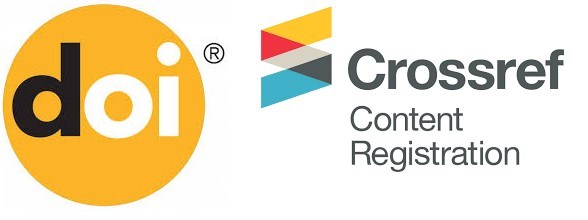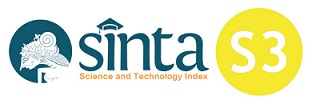PENERAPAN PSYCHOLOGICAL METHOD UNTUK MENINGKATKAN MENTAL DAN ASOSIASI PIKIRAN DALAM PEMBELAJARAN BAHASA ARAB
Studi Kritis terhadap Siswa kelas VII MTs Ma’arif Selomerto Wonosobo
DOI:
https://doi.org/10.32699/liar.v2i02.651Keywords:
psychological method, mental and mind association, arabic learningAbstract
the application of psychological method is expected that students can accept and be able to master the learning of Arabic, because the application of psychological method is a method used in each learning activity, especially language learning, by looking at the conditions of mental development and association of students' minds.This study aims to: 1) To find out some application of psychological method in learning Arabic class VII MTS Ma'arif Selomerto Wonosobo; 2) To know the improvement of students' mental from the learning of Arabic class VII MTS Ma'arif Selomerto Wonosobo; 3) To find out an increase in student's mind association from the learning of Arabic class VII MTS Ma'arif Selomerto Wonosobo.Research with experimental method using design of One Group Pretest-Posttest Design. Subjects in this study are students of class VII C MTs Ma'arif Selomerto which amounted to 27 students who made experimental class. Before the experimental class study was given a questionnaire and a pretest question. Students of the experimental class were given a study using psychological method (psychological method). The experimental class is subject to a final test in the form of a written test. Then the results are processed, analyzed, using the T-test to determine the mental improvement and mind associations of students studied.The results showed that: 1) Arabic learning for mental and mind associations of students in MTs Ma'arif Selomerto using psychological method (psychological method) with the steps on the learning; 2) Improvement of students' mental experiment class by 10,88; 3) Improved mind association of experimental class students 73,85; 4) There is an increase in mind association of students in the experimental class with tcount = 73,85; <ttable = 2,064. So that Ha accepted and Ho rejected.
Downloads
Published
Issue
Section
License
Authors who publish with this journal agree to the following terms:
a. Authors retain copyright and grant the journal right of first publication with the work simultaneously licensed under a Creative Commons Attribution-ShareAlike 4.0 International License. that allows others to share the work with an acknowledgement of the work's authorship and initial publication in this journal.
b. Authors are able to enter into separate, additional contractual arrangements for the non-exclusive distribution of the journal's published version of the work (e.g., post it to an institutional repository or publish it in a book), with an acknowledgement of its initial publication in this journal.
c. Authors are permitted and encouraged to post their work online (e.g., in institutional repositories or on their website) prior to and during the submission process, as it can lead to productive exchanges, as well as earlier and greater citation of published work (See The Effect of Open Access).












